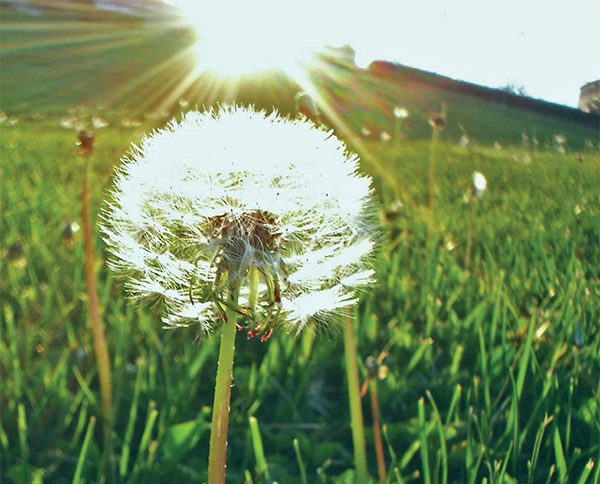
For most, summer brings the promise of long bright evenings, beautiful sunsets and the eternal hope of some warmth. For the rest, the telltale itchy, puffy, watery eyes and red, stuffy nose are the signal of the change in season. What these people suffer from is Allergic Rhinitis, more commonly known as Hayfever.
Hayfever is an allergic reaction to foreign material in the air we breathe, such as pollens, mould spores, dust mites and animal proteins. As these things are airborne, they are unfortunately impossible to avoid.
The symptoms associated with hayfever are as a result of a swelling of the mucous membranes of the throat, nose and eyes due to an inflammatory response. Inflammation is a hyper-response from our immune system in order to protect us. Cells in the body release a chemical called histamine which causes inflammation and excess mucous production. Mucous is a protective film secreted to line our mucous membranes and protect them from infection.
The good news is that, with a bit of help from nature, you can protect yourself from nature! Vitamin C, Vitamin A, Zinc and Bioflavonoids help to boost your immune system and act as an antihistamine (think citrus fruit, green leafy vegetables, potatoes, seeds, kiwi fruit and peppers). An antihistamine is a chemical that alters the way that certain inflammatory cells are affected by an allergen.
Other preventative measures are, where possible, to stay inside when pollen is at its peak, usually from 7am to 9am, and 4pm to 6pm, on windy days, just after thunderstorms; and also where there is freshly-cut grass.
Applying a barrier-ointment, such as a non-petroleum jelly to the base of the nostril helps to trap the pollen and prevents it from irritating the lining of the nose.
Avoiding drying clothes and sheets outside in peak hours where pollen is likely to stick to them can also be helpful.
It is important to start an anti-hayfever regime early on in the season to help build up an immunity. From six weeks up to pollen season, take supplements, eat plenty of the foods mentioned above and include bee pollen and honey in the diet regularly and continue this throughout the season.
New research from Ohio State University shows that stress and anxiety lengthens the effect of seasonal allergic reactions such as hayfever so it is important to bear this in mind.
Dairy, particularly cows’ milk, is a strong mucous-forming food and overexposure can interfere with the body’s natural mucous production. Try avoiding dairy (or even just cow’s milk) at this time to see if symptoms improve.
Nicky is a Naturopathic Nutritionist practising in Dublin. She writes, speaks and advises nationwide on all aspects of health, nutrition and wellbeing. Check www.nickyflood.com for further info, upcoming courses and workshops.
By Nicky Flood



